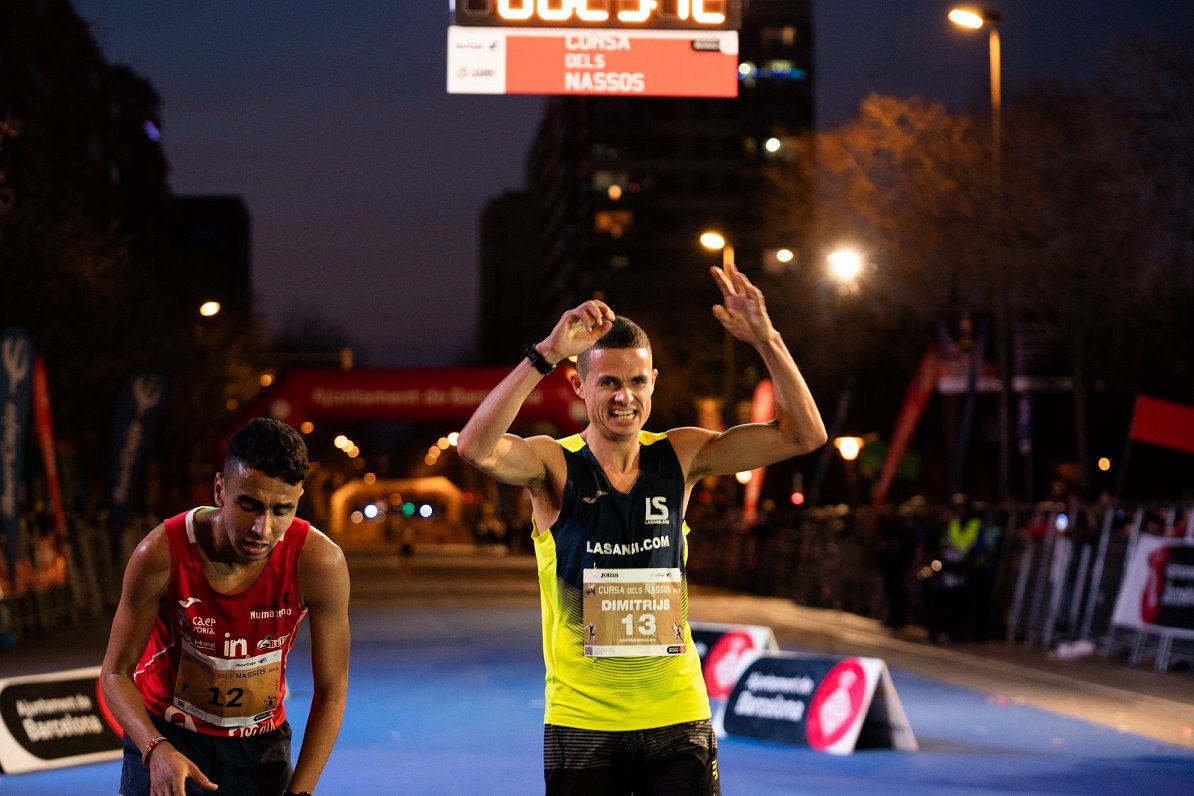This was Serjogins' fourth start in a row in this New Year's Eve race, improving on his time and place every year. A year ago he bested the 9-year-old Latvian record held by Valērijs Žolnerovičs, so this time he was competing against his own time.
A large leader group formed at the beginning of the race, including the Latvian runner, at times neared the front runner setting the pace. At the last kilometer the group got smaller with several runners increasing their pace. Serjogins was sixth across the finish line, but after three disqualifications the La Sansi club winter runner from Mārupe moved up to third place. His new personal record became the Latvian record for 10 kilometer road races. Local runner Artur Bossy finished first for the second year in a row.
Other Latvians also participated in the Barcelona 10k race. Dimitrijs Jurkevičs, who bested the long-standing Latvian record for the 2000 meter stadium race, placed 13th with a time of 30:34. He is also the national record-holder for the 1500m and 3000m races. Jānis Razgalis was right behind him with a time of 30:53, finishing in the top 20, and Edgars Šumskis placed 36th with a time of 31:26.
Mārtiņš Babkins (35:55, 340th place) mixed up numbers with Alise Griķe (59:06, 6936th place) from Daugavpils, accidentally elevating the fellow hometown runner to 15th place in the women's competition. Kitija Valtere from Līvāni placed 21st in her third time running the race, setting a new personal record with a time of 36:50.
The race is one of the toughest competitions in Europe, including 10 400 competitors from 50 different countries. The race also has the most competitors who are capable of finishing the race in under 40 minutes.
A few days earlier on December 26 at the Sant Silvestre del Masnou 5k in Catalonia, Valtere placed first with a time of 17:59, and Serjogins placed first with a time of 14:23.


























